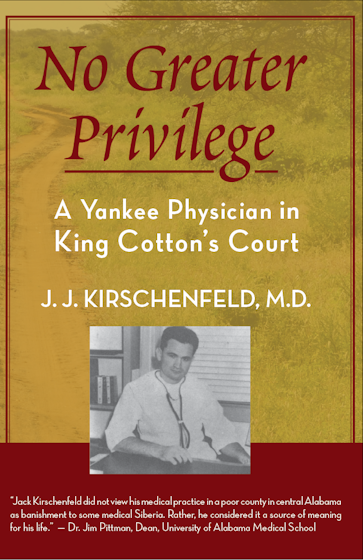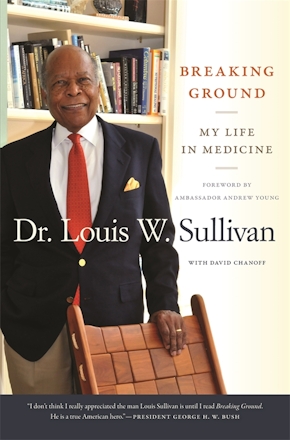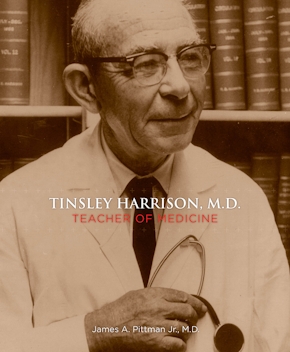No Greater Privilege
A Yankee Physician in King Cotton's Court
Title Details
Pages: 192
Illustrations: 20 b&w photos
Trim size: 6.000in x 9.000in
Formats
Paperback
Pub Date: 02/01/2018
ISBN: 9-781-5883-8352-5
List Price: $24.95
Imprint
NewSouth BooksRelated Subjects
No Greater Privilege
A Yankee Physician in King Cotton's Court
Skip to
- Description
Jack Kirschenfeld’s compelling autobiography opens with a vivid account of his own heart attack, and concludes with a candid appraisal of the state of medicine in the United States at the close of the 20th century. In between, he takes the reader on a journey across seven decades, as a young immigrant grows up in New York, beats the odds to get into medical school, goes to war, and improbably launches a medical career in the heart of the Deep South.
Lowndes County, Alabama, where the young doctor moved his family to set up his practice in 1946, was then and still is one of the poorest counties in the United States. Though King Cotton has long been dethroned, magnificent antebellum plantation mansions still stand in close proximity to dilapidated tenant shacks.
When the Kirschenfelds arrived, Jim Crow segregation was still the order of the day, and the Black Panther Party, which was born in Lowndes County, was yet unimaginable. The Selma-to-Montgomery march and the murder by Ku Klux Klansmen of Viola Liuzzo were still in the county’s future, though the signs of the coming civil rights movement were there for the keen observer. The population of Lowndes County, for example, was 80 percent black, yet in 1946 there was not a single registered black voter.
This was a peculiar environment for a Yankee doctor, yet Kirschenfeld could not have found his patients there any stranger than they found him. But over the next fourteen years, doctor and patients grew to know—and trust—one another.
In 1960, Kirschenfeld moved his medical practice to Montgomery, where the turbulent social changes brewing in Lowndes County reached their dramatic conclusion, with George Wallace’s flagrant assaults on the civil rights decisions of U.S. District Judge Frank M. Johnson Jr., whom Kirschenfeld served as personal physician.
The changing political landscape was no more dramatic than the advances taking place in medicine, and Kirschenfeld participated in those as well, writing medical articles and traveling weekly to Birmingham to take part in teaching rounds at the acclaimed University of Alabama School of Medicine.
Kirschenfeld was recognized by his peers with the “Internist of the Year” award and also the Laureate Award of the Alabama Chapter of the American College of Physicians.


